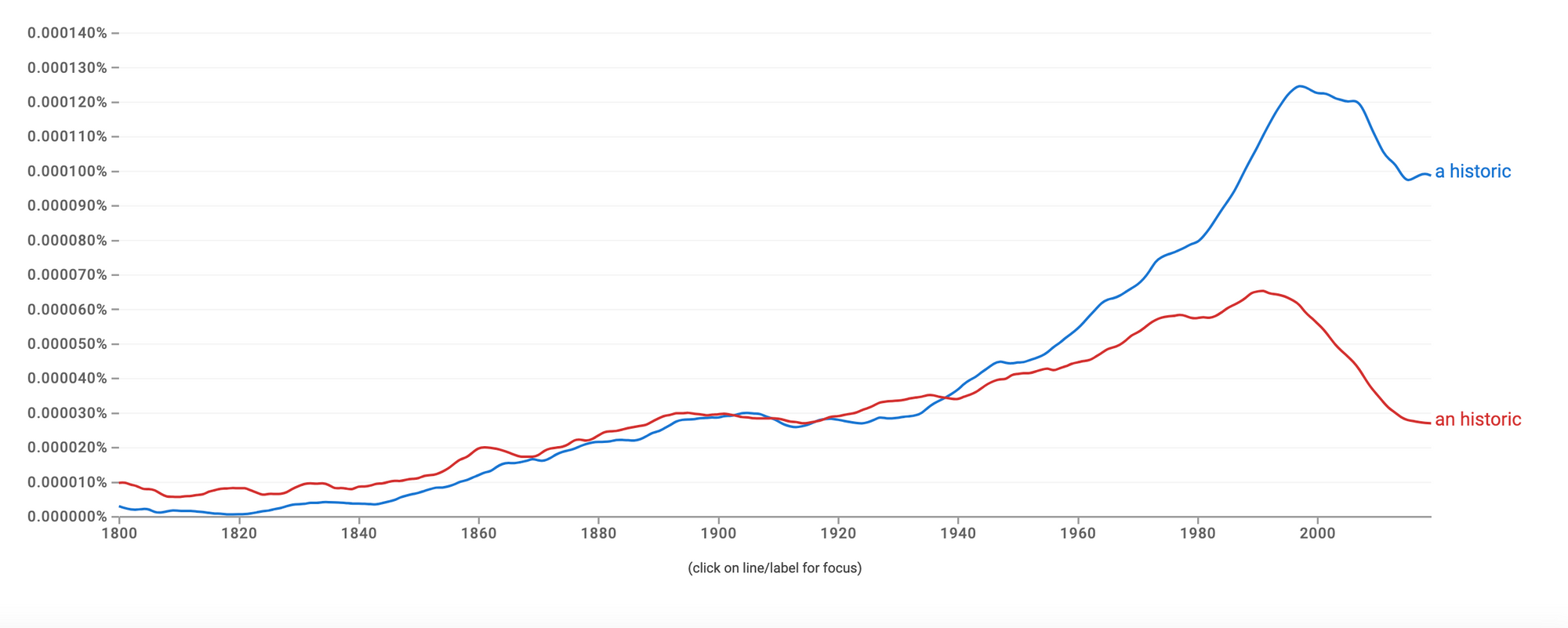Is it a or an history? Is it a historian or an historian? Most style guides prefer the use of "a" before history, but some people use "an" for words such as historian, historical and historic. With this in mind, the use of "a" and "an" can be seen as a stylistic preference of the writer.
In the vast and intricate world of English grammar, one common point of confusion arises when deciding whether to use "a" or "an" before words that begin with the letter 'h.' Specifically, the dilemma often centers around phrases like "a history" and "an history." Engram will further detail how to approach this conundrum in an accurate and thoughtful manner.

A vs. An
The choice between "a" and "an" before a word usually depends on the pronunciation of the word that follows. The rule to remember is straightforward:
- Use "a" before words that begin with a consonant sound.
- Use "an" before words that begin with a vowel sound.
More Engram articles related to A vs. An
Now, let's explore the pronunciation of "history."
- Most style guides prefer to use "a" before "history," as the h is pronounced, thus to be safe, one should use the phrase "a history."
Let's explore the pronunciation of "historic".
- For words such as historian and historic, most style guides recommend using "a", but some people still choose to use "an".

In the past, both forms of the expression were in common use until the 1940s, at which point "a historic" began to surpass "an historic" in popularity. By the 1990s, "a historic" had become far more prevalent than "an historic." The choice between these two forms might be influenced by generational factors or could be a result of inheriting the preference from an older generation, such as a parent or teacher.
Regional differences
Alternatively, regional accents and dialects may play a significant role in this preference. English speakers historically did not pronounce the initial "h" in words like "historic" until relatively recent times. This lack of pronunciation was likely influenced by the French word "historique," which does not emphasize the initial "h." In areas where "h-dropping" is common in regional English dialects, people may still not pronounce the "h" in "historic," and these individuals are more inclined to use "an historic" (pronounced as "an 'istoric") rather than "a historic."
Common Idioms/Phrases:
- "Make history": This idiom means to do something remarkable or significant that will be remembered for a long time. For example, "Winning the championship would make history for our team."
- "History repeats itself": This phrase suggests that events and patterns tend to recur in a similar way over time.
- "Ancient history": This term refers to events or information from the distant past, often implying that they are no longer relevant.
Synonyms for "History":
If you're looking to vary your vocabulary when discussing history, consider these synonyms:
- Past
- Record
- Chronicle
- Annals
- Account
- Narrative
- Story
By following the pronunciation-based rule for indefinite articles, you can confidently navigate phrases like "a history" and "an history." This mastery of grammar ensures that your communication is not only grammatically precise but also a testament to your linguistic prowess.
Want to sound like a native speaker?
Engram’s AI-powered grammar checker makes your English sound like a native speaker’s, suggesting natural English expressions on top of fixing grammar, spelling, punctuation, word order, and vocabulary.

Reference
















